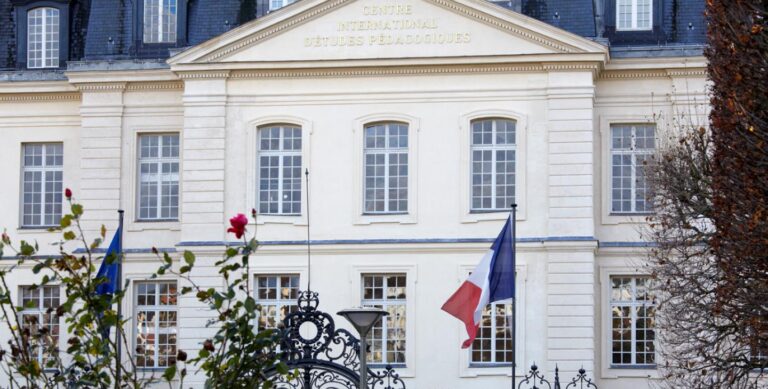In an increasingly interconnected world, France is emerging as a premier destination for international education, blending rich cultural heritage with cutting-edge academic excellence. The latest issue of Relocate magazine shines a spotlight on how France is attracting students and professionals from around the globe, offering world-class institutions, diverse programs, and unique opportunities for personal and professional growth. This special focus explores the country’s educational landscape, government initiatives, and success stories, providing valuable insights for families and individuals considering a move abroad for study.
Exploring France’s Diverse Educational Landscape for International Students
France’s education system is a mosaic of opportunities carefully tailored to nurture global talent at every level. From prestigious grandes écoles offering specialized and highly competitive programs to a vibrant public university network welcoming international scholars, the country caters to diverse academic needs. Notable for its emphasis on research and innovation, many institutions provide robust support services including language assistance, integration programs, and career guidance aimed at smoothing the transition for students arriving from abroad.
International students can choose from an array of study paths, each backed by unique strengths:
- Undergraduate programs focusing on foundational skills across arts, sciences, and business.
- Postgraduate studies
- Vocational training
| Education Level | Typical Duration | Popular Fields |
|---|---|---|
| Licence (Bachelor’s) | 3 years | Business, Arts, Science |
| Master’s | 2 years | Engineering, Management, Law |
| Doctorate (PhD) | 3-4 years | Research, Academia |
Key Benefits of Studying in France for Expats and Their Families
France’s education system offers a rich blend of tradition and innovation, making it a prime destination for expat families seeking a high-quality international education. The country’s diverse curriculum options, spanning bilingual and international schools, allow children to receive a globally recognized education that eases transitions between countries. Moreover, France places strong emphasis on holistic development, encouraging creativity and critical thinking alongside academic rigor. Coupled with affordable tuition fees compared to other international hubs, this creates an attractive proposition for families eager to invest in their children’s future.
Additional advantages include:
- Access to world-renowned cultural institutions and language immersion opportunities
- Robust government support for expatriate education, including scholarships and integration programs
- A safe and inclusive environment that fosters diversity and global citizenship
- Convenient infrastructure linking international schools with vibrant urban centers
| Benefit | Impact on Families | Unique Feature |
|---|---|---|
| Multilingual Learning | Enhances communication skills | French/English bilingual programs |
| Affordability | Reduces financial burden | Public school access for residents |
| Cultural Exposure | Promotes global awareness | Proximity to art and history landmarks |
| Community Support | Facilitates social integration | Expat networks and local events |
Navigating French School Systems and Enrollment Procedures
Understanding the educational landscape in France is crucial for expatriates aiming to ensure a smooth transition for their children. The French system is structured into three key stages: école primaire (primary school), collège (middle school), and lycée (high school). Each stage follows a nationally standardized curriculum managed by the Ministry of National Education. Parents should note that public schools are free and governed by strict local zoning rules, meaning enrollment often depends on your residential address. On the other hand, private institutions, including many international schools offering bilingual or foreign curricula, provide alternative options but typically require early application due to limited seats.
Enrollment procedures vary between public and private schools but generally involve the following steps:
- Gathering official documents: Proof of residency, child’s birth certificate, vaccination records, and previous school reports
- Registration with the local town hall (mairie): Essential for public school placement
- Contacting the school administration: Direct communication to confirm availability and specific paperwork
- Language assessment: Some schools require proficiency tests or offer support programs for non-French speakers
| School Type | Enrollment Window | Key Contact |
|---|---|---|
| Public School | April – June | Local Mairie / School Office |
| Private French School | February – May | School Registrar |
| International School | Varies (often early year) | Admissions Department |
Top Recommendations for a Successful Academic Transition in France
Adapting to the French academic environment demands proactive preparation and a clear understanding of the local system. First and foremost, international students should familiarize themselves with the French grading scale and academic expectations. Unlike many other countries, French universities emphasize continuous assessment, critical thinking, and presentation skills. Building strong relationships with professors and seeking support from academic advisors or student services can significantly ease the integration process. Additionally, mastering the French language or enrolling in language courses aids in participating fully in lectures and discussions, which are often delivered in French.
- Understand the credit system: The European Credit Transfer and Accumulation System (ECTS) helps in recognizing your qualifications across borders.
- Engage with peer networks: Join student clubs and international associations to build a support system.
- Plan for administrative requirements: Visa documentation, health insurance, and enrollment procedures can be time-consuming but are crucial.
Equipped with practical tools and cultural insight, students can navigate the challenges of relocating while thriving academically. Remember, the French education system values initiative and self-discipline, so investing time in understanding course syllabi and deadlines pays off. It is also beneficial to leverage digital platforms offered by universities for academic resources and communication. Below is a quick guide to essential services offered by French universities that support academic and personal development:
| Service | Description | Typical Availability |
|---|---|---|
| Orientation Programs | Introduction to university life, academic expectations, and local culture | Start of each semester |
| Language Support | French language workshops and tutoring | Year-round |
| Counseling Services | Personal and academic counseling to address stress and adaptation | By appointment |
Key Takeaways
As France continues to expand its reputation as a premier destination for international education, students from around the globe are increasingly drawn to its rich cultural heritage, innovative academic programs, and vibrant campus life. This growing trend underscores the country’s commitment to fostering global talent and cross-cultural exchange. With ongoing investments in education infrastructure and policies supporting international students, France is poised to strengthen its position on the world stage as a hub for learning and opportunity. For those considering a move abroad, the French education system offers not only academic excellence but also an immersive experience that shapes future leaders in an interconnected world.




